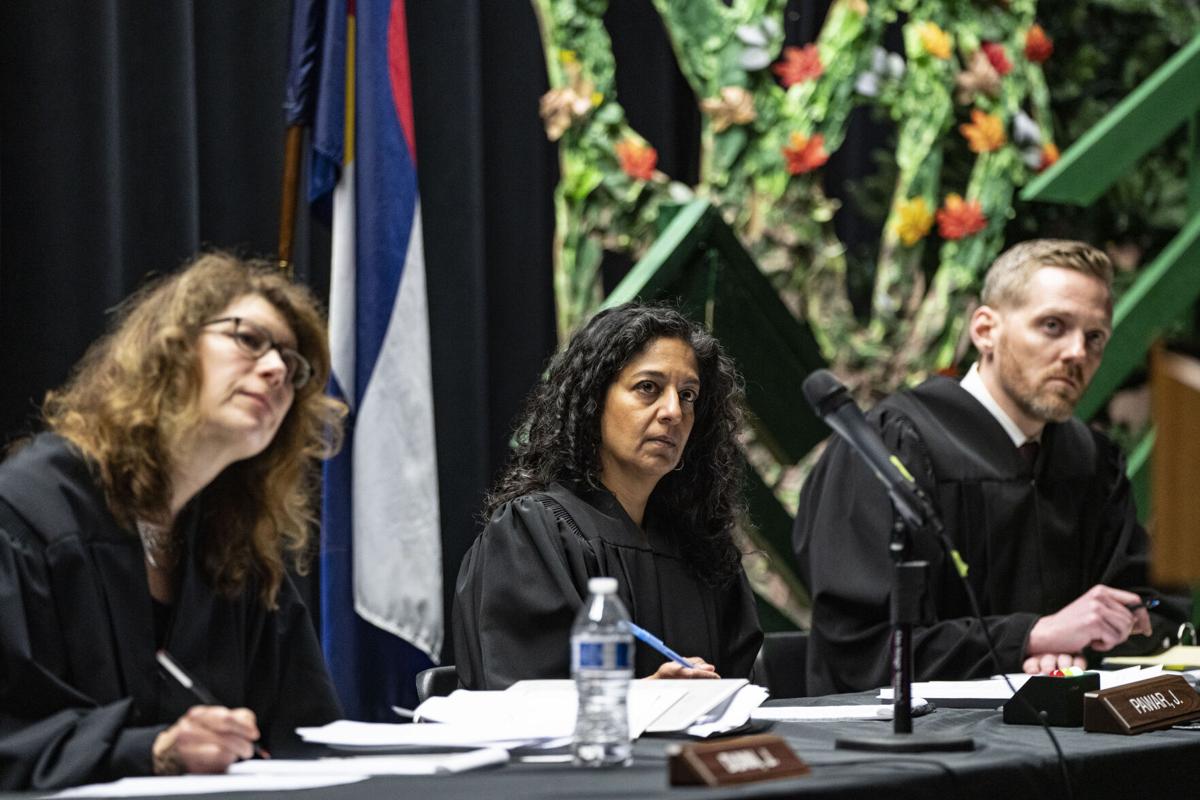Appeals court rejects student’s lawsuit against Regis University over misconduct investigation

Colorado Court of Appeals Judges Stephanie Dunn, Neeti V. Pawar and Grant T. Sullivan listen to the case of People v. Dooley at Fort Lupton High School on Tuesday, April 2, 2024 in Fort Lupton, Colorado. The Colorado Court of Appeals and Supreme Court hold "Courts in the Community" events for students to learn about the justice system and hear real cases. (Rebecca Slezak For The Denver Gazette)
Rebecca Slezak
Colorado’s second-highest court on Thursday rejected a male student’s lawsuit against Regis University for allegedly performing a flawed investigation into the sexual misconduct complaints about him.
The plaintiff, identified as J.L., was the subject of an inquiry after three female students accused him of unwelcome advances or improper touching. Following an investigation that found J.L. violated university policy, Regis suspended him for three years and barred him from campus beginning in 2019.
J.L. initially sued in federal court for an alleged constitutional violation, but a judge sided with the university. J.L. then filed suit in state court, asserting Regis acted negligently in its investigations.
A trial judge in Denver dismissed the claim in August 2023, reasoning J.L. initiated his lawsuit days beyond the statute of limitations. On appeal, J.L. and Regis argued over the timing of his claim, but an outside development suddenly shifted the legal landscape.
In May, the state Supreme Court decided University of Denver v. Doe, a case in which a male student expelled for sexual misconduct sued DU for allegedly breaching its contract by deviating from its promised investigative procedures.
By 6-1, the Supreme Court ruled that plaintiff “John Doe” could pursue a breach of contract claim because DU’s promise of a “thorough, impartial and fair” investigation, combined with specific procedures, was enough to constitute an enforceable agreement.
At the same time, the court rejected a related negligence claim, clarifying that breach of contract was the path forward for students in Doe’s shoes.
A three-judge panel for the Court of Appeals, sidestepping the timing question in J.L.’s case, instead pointed to the Supreme Court’s decision to conclude J.L.’s negligence claim against Regis was not viable.
“Regis’s Policy requires that if Regis determines a sexual misconduct report warrants an investigation, ‘the University will initiate a prompt, equitable, thorough and impartial investigation,’” wrote Judge Neeti V. Pawar in the Dec. 19 opinion.
Because J.L.’s case mirrored the Doe decision, the panel determined he needed to bring a breach of contract claim if he wanted to litigate the investigation.
The case is J.L. v. Regis University.
[related_articles]






